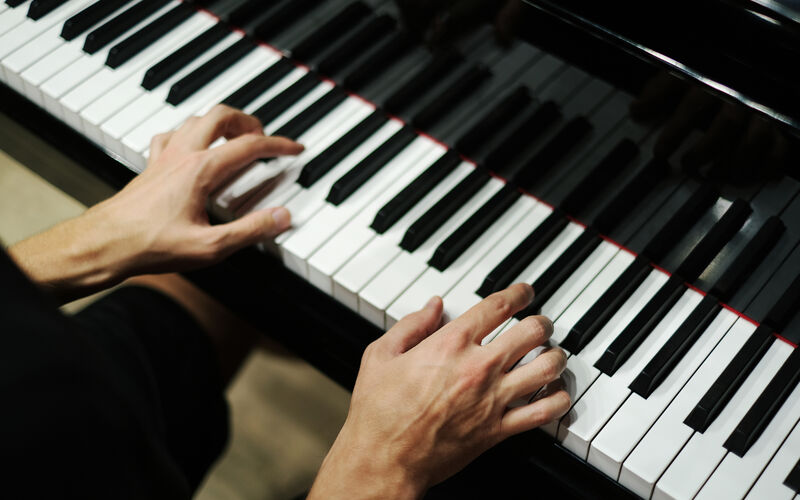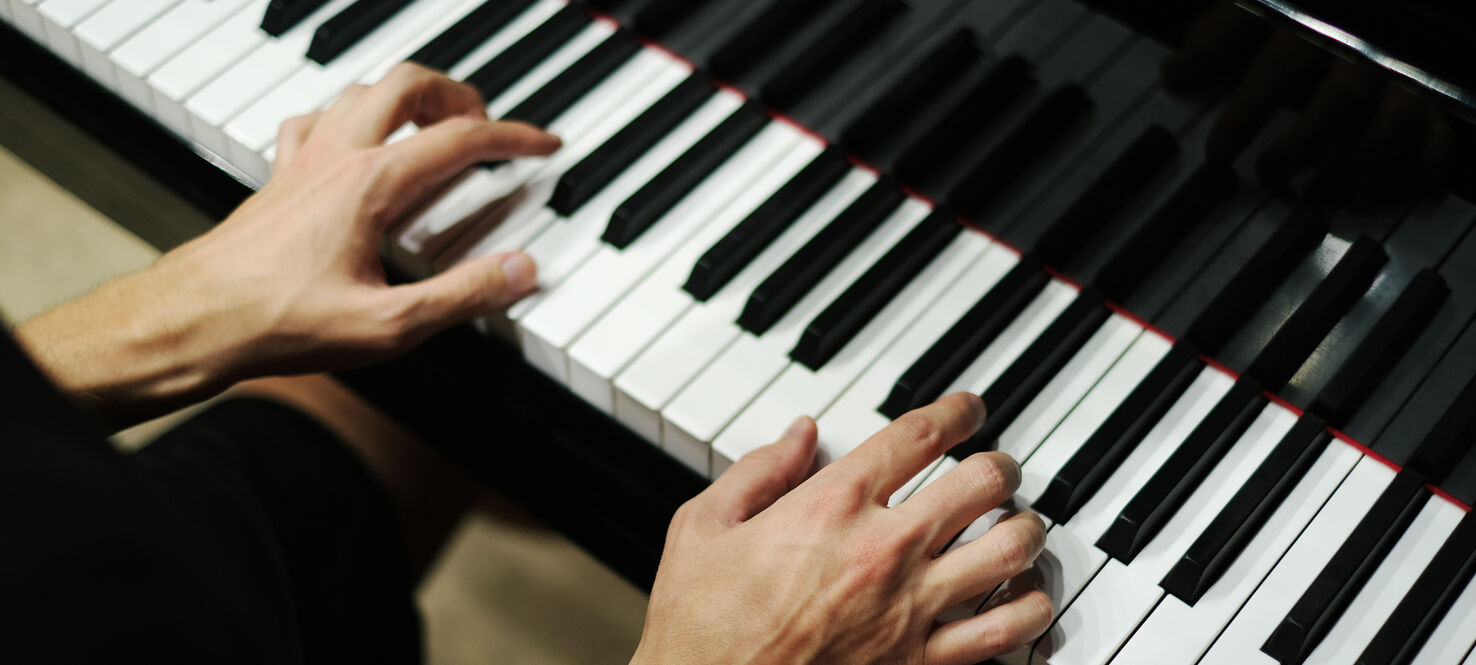Can Music Help Boost Cognition in Cancer Patients?
When Robin Hesselink’s parents bought a piano for her childhood home, she was eager to play it. But her younger brother got to take lessons, and she always regretted not getting her chance.
That chance came decades later, at a very unexpected time and place. Hesselink was in a waiting room at Moffitt Cancer Center where she was being treated for metastatic breast cancer when she spotted a flyer offering piano lessons to patients.
Hesselink was one of 15 cancer patients enrolled in Keys to Staying Sharp, a first-of-its-kind study investigating if music can help boost cognition in patients undergoing chemotherapy. In partnership with the University of South Florida, researchers wanted to see if piano lessons could help eliminate the memory decline often caused by treatment and improve quality of life.
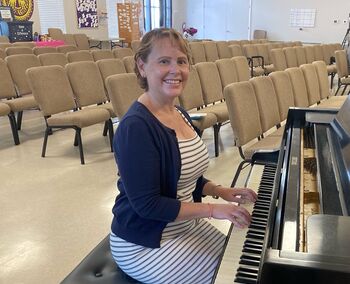
Robin Hasselink says her cognition and quality of life improved after taking piano lessons as part of the Keys to Staying Sharp study.
“We are interested in examining whether social support while learning a musical instrument can increase cognition in patients undergoing treatment for cancer when holding curriculum constant, which areas of cognition may be improved and what duration of music training is optimal for patients,” said Jennifer Bugos, PhD, principal study investigator and professor of music education at the University of South Florida.
According to the American Cancer Society, patients undergoing chemotherapy may have trouble remembering things, focusing, finishing tasks or learning new things.
Patients in the study were given a baseline cognitive assessment followed by nine weeks of group piano lessons at the University of South Florida’s School of Music. They were sent home with a keyboard so they could practice, and at the end of the course repeated the cognitive assessment.
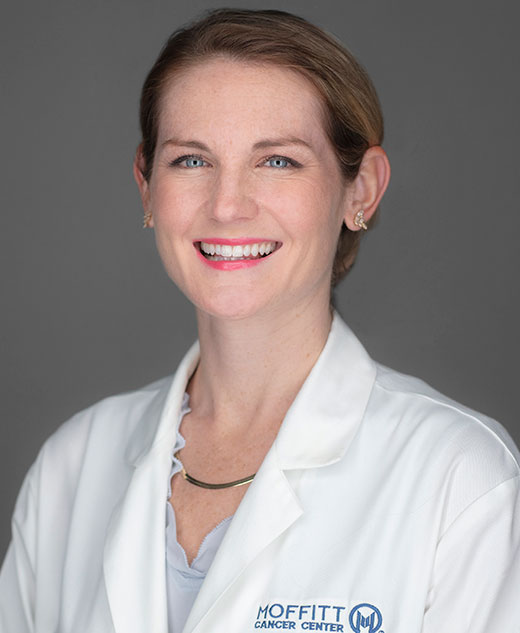
Melissa Mallory, MD
“This study focuses a lot on a patient-centric approach to cancer care,” said Melissa Mallory, MD, a breast surgeon at Moffitt and study co-leader. “I really believe that in order to maximize patient outcomes, you need to focus on the whole patient, not just the cancer. It’s not just about breast cancer, it’s the whole body, the mental and emotional well-being.”
The piano lessons came at the perfect time for Hesselink, who had just started her seventh different treatment regimen since her diagnosis in 2017 at age 35.
“I definitely had chemo brain and was sometimes having trouble recalling words,” she said. “While playing the piano, I felt like I was activating different parts of my brain to read the music and remember the notes and hand positions.”
The lessons also boosted Hesselink’s mental health.
“They came at a time where I was having more downs than ups. Things weren’t going super well healthwise, but it was nice to have this kind of creative outlet, and it gave me a sense of accomplishment, which is something I hadn’t felt in a while.”
The patients in the study also say they benefited from meeting other patients in similar situations at the lessons.
“The socialization, the focus away from what is going on with you, learning a new skill and making your brain work better, it was all amazing,” said Perri Ann Parkman, a Moffitt breast cancer patient.
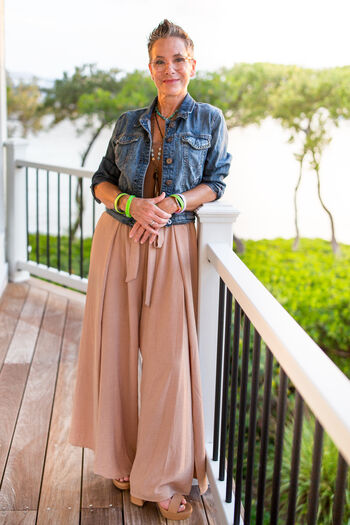
Perri Parkman enrolled in the study after her HER-2 positive breast cancer diagnosis.
Parkman was diagnosed with HER 2-positive breast cancer shortly after her 17-year-old son committed suicide as a result of chronic traumatic encephalopathy, a progressive brain disease that can develop after repeated head injuries.
She says the lessons helped her to feel something she hadn’t in a long time: happiness.
“After starting the lessons, things just started to make sense again,” Parkman said. “Having to practice was a focus way from what was happening to me and my family, and I had to just stay focused on that one thing of plunking out that song.”
While the researchers are still waiting to publish the study’s outcomes, preliminary data suggests patients demonstrated enhanced executive functions, a set of cognitive skills that help people plan, solve problems and manage emotions, after the group piano lessons and many self-reported they found the experience to be enjoyable.
The University of South Florida is now studying if playing a smaller version of the saxophone called the JSax can improve respiratory function and cognitive ability in patients with COVID-19.


